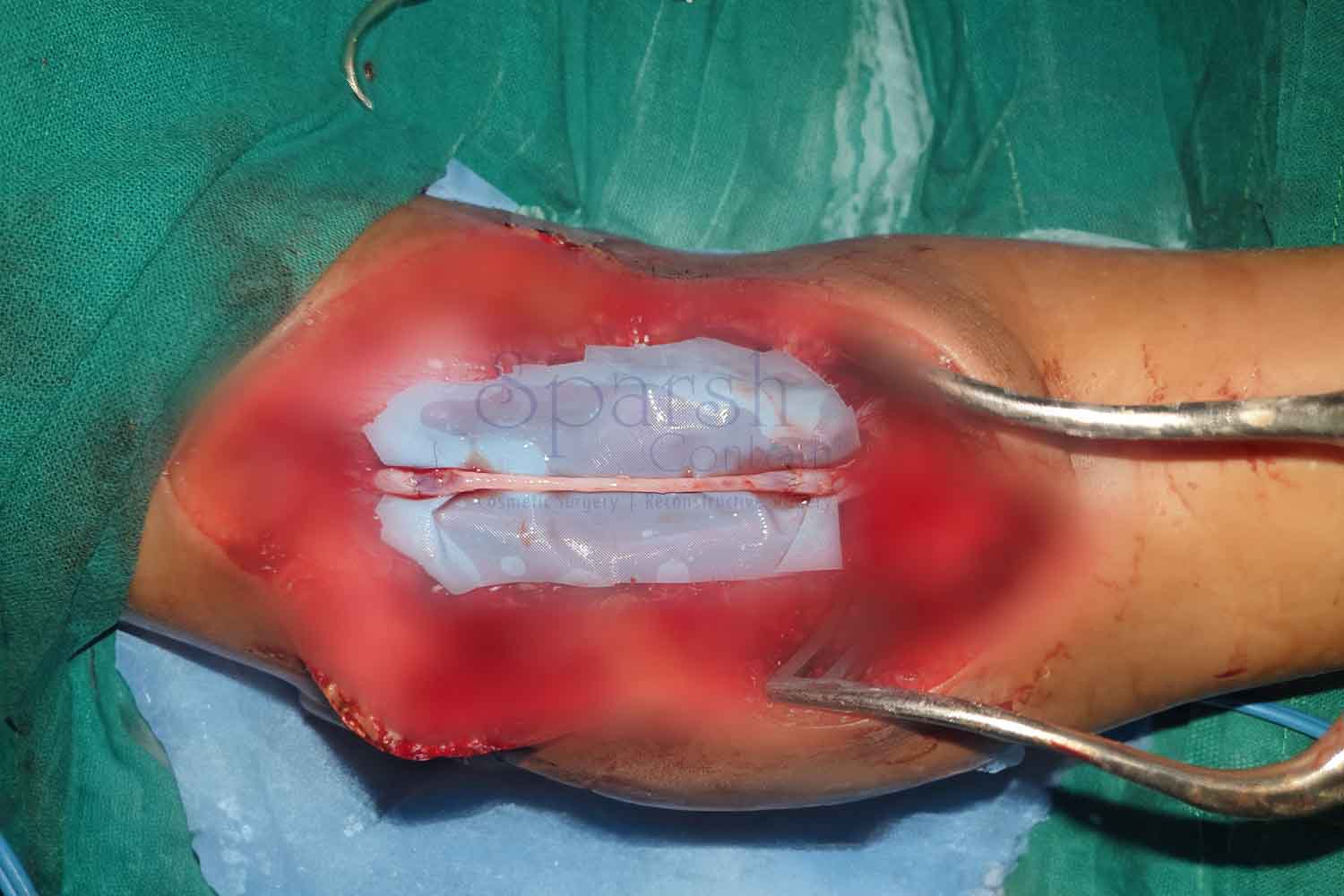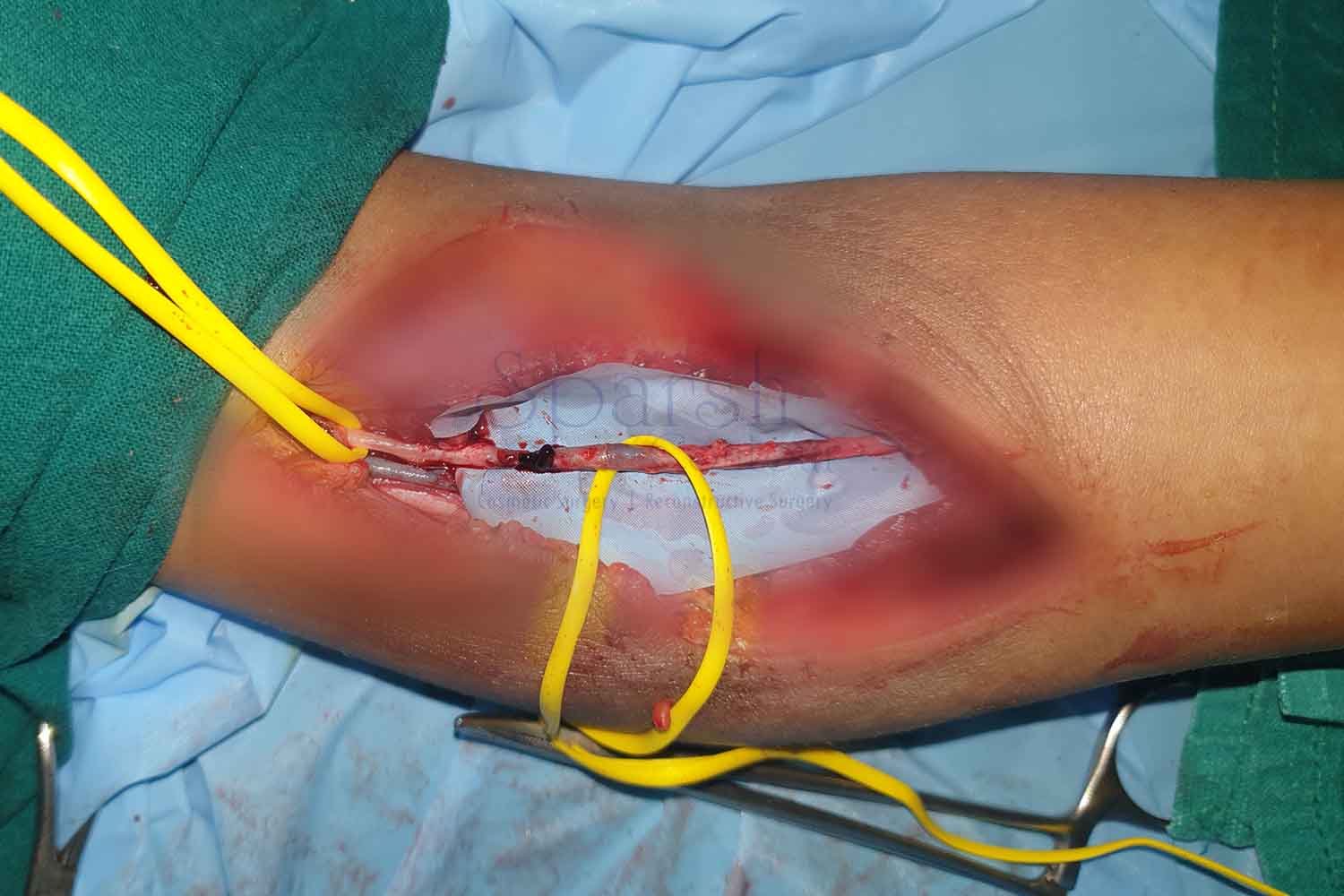Reconstruction Surgeries
Vascular Injuries Management
Vascular injuries refer to damage to blood vessels, including arteries, veins, or capillaries, caused by trauma, surgical complications, or underlying health conditions. These injuries can lead to significant blood loss, tissue damage, and impaired circulation, posing a risk to life and limb. Managing vascular injuries requires a multidisciplinary approach, and plastic surgeons play a critical role in restoring vascular integrity and preventing complications.
Dr. Sushil Nahar’s expertise encompasses evaluating the extent of vascular damage, employing microsurgical techniques to repair blood vessels, and ensuring optimal blood flow to affected tissues. Management of vascular injuries may involve procedures such as vascular anastomosis (reconnection of blood vessels), grafting, or flap surgeries to restore circulation.
In addition to acute trauma cases, Dr. Nahar also addresses vascular complications arising from chronic conditions, such as diabetes or peripheral artery disease, which can impair wound healing and increase the risk of amputation. Dr. Sushil Nahar’s holistic approach to vascular injury management emphasizes not only repairing the damage but also restoring function and quality of life.
Dr. Sushil Nahar’s expertise encompasses evaluating the extent of vascular damage, employing microsurgical techniques to repair blood vessels, and ensuring optimal blood flow to affected tissues. Management of vascular injuries may involve procedures such as vascular anastomosis (reconnection of blood vessels), grafting, or flap surgeries to restore circulation.
In addition to acute trauma cases, Dr. Nahar also addresses vascular complications arising from chronic conditions, such as diabetes or peripheral artery disease, which can impair wound healing and increase the risk of amputation. Dr. Sushil Nahar’s holistic approach to vascular injury management emphasizes not only repairing the damage but also restoring function and quality of life.
 After
After  Before
Before Drag
Reconstruction Surgeries
Why Vascular injuries Management is needed ?
- Reconstructs Complex Injuries: Plastic surgeons specialize in intricate microsurgical techniques to repair even the smallest blood vessels.
- Prevents Long-Term Complications: Early intervention minimizes risks like blood clots, infections, or permanent disability.
- Prevents Tissue Death: Timely management prevents ischemia and necrosis, reducing the risk of losing tissues or limbs.
- Reduces Amputation Risk: Effective vascular management lowers the likelihood of limb loss in severe cases of compromised blood flow.
our expert answers
frequently asked questions
How do I know if I have a vascular injury?
Symptoms include excessive bleeding, swelling, bruising, numbness, reduced blood flow, or cold and pale skin in the affected area.
When should I see a plastic surgeon for vascular injuries?
If you experience symptoms of vascular damage or have a complex wound requiring precise surgical repair, consult a plastic surgeon.
Is vascular injury management a surgical procedure?
Yes, it often involves surgical interventions, especially for severe injuries or compromised blood flow.
How are chronic conditions like diabetes managed during vascular injury treatment?
Surgeons work with a multidisciplinary team to control underlying conditions, ensuring optimal healing and preventing complications.
What post-surgery care is required after vascular injury management?
Care involves wound monitoring, infection prevention, physical therapy, and regular follow-ups to ensure successful recovery.
APPOINTMENT
